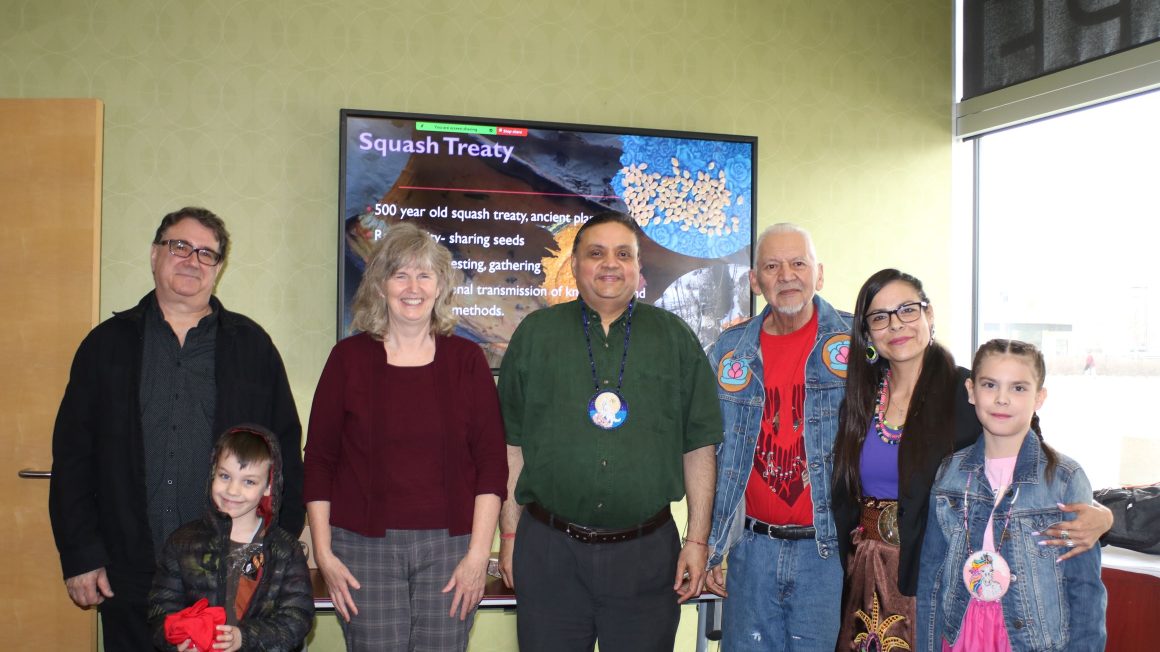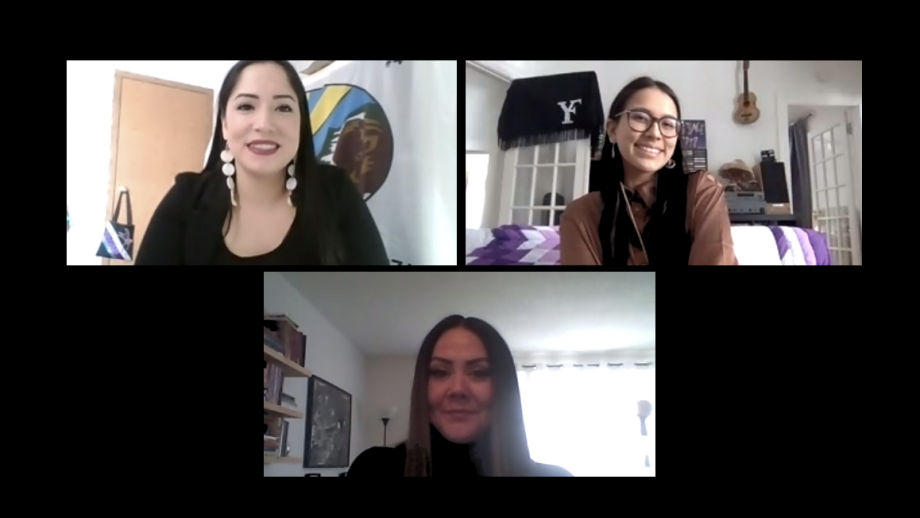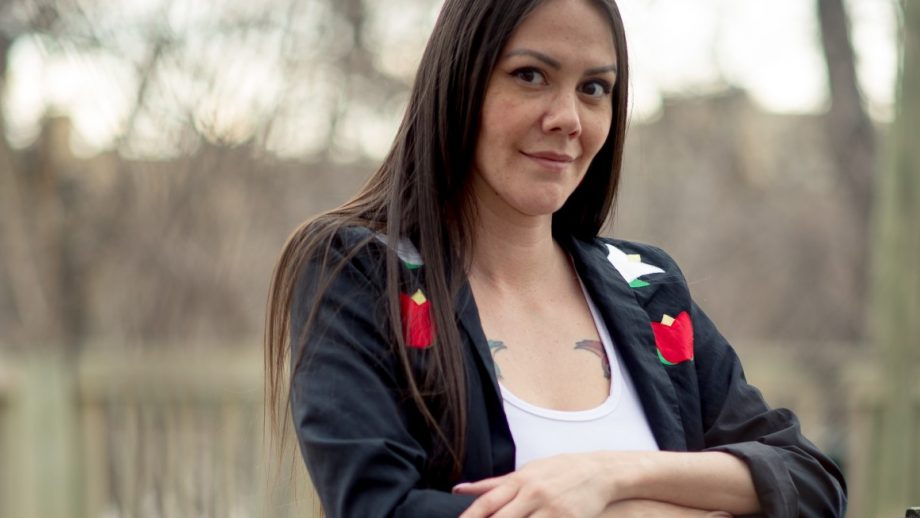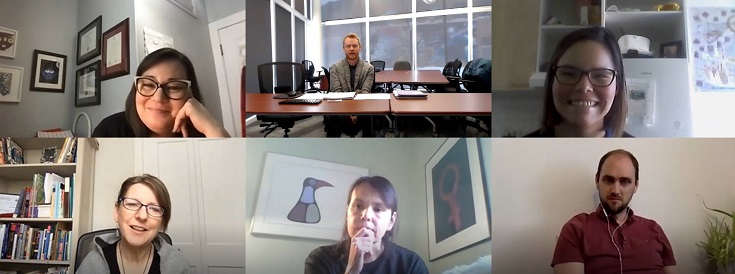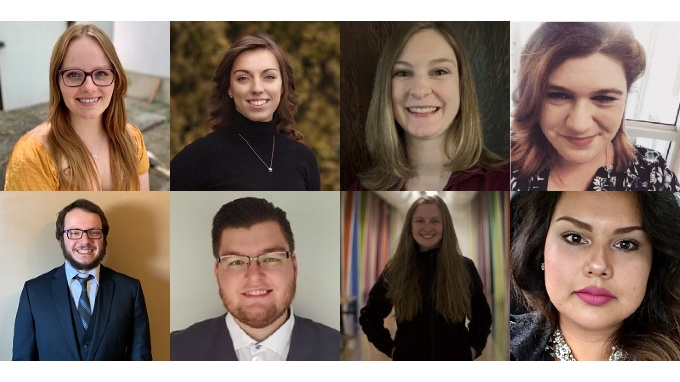UWinnipeg’s Master of Arts in Indigenous Governance (MAIG) program prepares graduate students for leadership within Indigenous organizations of all types, and it also leads to some groundbreaking research.
This spring saw two thesis defenses that showcase such research: Anna Neil’s Land as a Teacher: Indigenous food knowledges and perspectives from Long Plain First Nation, and Maria Belen Gallegos Espinel’s Indigenous knowledge and tourism on protected areas under constitutional Sumak Kawsai in Ecuador: Policies and legislation.
“Like many MAIG students, these students’ theses are based on primary research on very important Indigenous issues – through community-based research in community settings during the most-challenging (COVID) times,” said Dr. Shailesh Shukla, Associate Professor and Chair of the Department of Indigenous Studies.
Lessons from Long Plain
Anna Neil’s project faced some unique challenges due to COVID restrictions, but getting out on the land was fundamental to her work.
“This research took five years, and was hard to do during COVID, but it’s important to build on voices of the community,” said Neil, an Anishinaabe student from Camp Croker, Ontario. “There are gaps, a lack of understanding of Indigenous teachings and knowledge.”
We’re bringing children back on the land.
Anna Neil
Neil’s research was also partially supported by funding from Dr. Shirley Thompson from University of Manitoba, who served as an external examiner. Thompson is a well-known Indigenous food security scholar and professor. Neil also worked with Anishinaabe Knowledge Keeper Dave Daniels, who is from Long Plain First Nation, and part of the student thesis advisory and examination committee. “Dr. Shukla brought Anna and told me about her project. She sang a song and we became good friends. We discovered we’re both from the Bear Clan – she’s my Bear Clan sister.”
Daniels has been gardening since he was five years old, with knowledge passed from parents, grandparents, aunties, and uncles. He learned about food security early and now shares those land-based teachings with others.
“This work is important because it’s a way to bring youth to this knowledge. Gardening is a life-changing experience. It’s hands-on, not theoretical. It helps students know who they are through Indigenous wisdom,” said Daniels.
“There is a lack of scholarly understanding and a need for collaboration at all levels,” said Neil. “Indigenous community Knowledge Keepers are teaching our paradigms into land-based initiatives. We’re looking at how we can add this to curriculum for early-year students.”
Neil is developing culturally relevant curriculum for Indigenous communities. “It’s all about youth empowerment. We’re bringing children back on the land,” she said. She is also a teaching assistant for Dave Daniels, who has been teaching the Pathways to Indigenous Wisdom course in Indigenous Studies at UWinnipeg since fall 2023.
Neil plans to continue teaching future leaders and looks forward to more land-based work.
Indigenous culture and legislation in Ecuador
Maria Belen Gallegos Espinel’s research examined deficiencies in Ecuadorian legislation that aims to protect Indigenous culture and knowledge in traditional and protected lands in Ecuador, and how it’s affected by the tourism economy.
Her work found inequities between Indigenous community tourist centres and tourist operators. She found financial inequities, but also found issues regarding conservation and expression of Indigenous cultural heritage. Her research found ways the Ecuadorian state could safeguard Indigenous knowledge and promote responsible use by tour operators.
“Maria Belen’s research is extremely significant for supporting the rights of Nature and Indigenous people, their knowledge, and culture, including intangible cultural expressions,” said Dr. Mark Ruml, MAIG Chair and Religion and Culture Professor. “It was fascinating to learn that the Sumak Kawsay (Living Well) principle (a principle that conflicts with Western capitalist ideals) and the protection of Nature is enshrined in the Ecuadorian constitution. I was honoured to be asked to serve as a thesis examiner for both Maria Belen’s and Anna Neil’s thesis. During my term as MAIG Chair I witnessed the important research being conducted by brilliant Indigenous graduate students, passionate about making a positive contribution to benefit their human and non-human relatives and working closely with their communities and Knowledge Carriers. Through their perseverance and commitment, they truly earned their degrees and I can’t wait to see what they do next.”
Community-based research
Another community-based project was recently published in the journal Frontiers in Sustainable Food Systems by MAIG alumna Lisa Young. The project, “Indigenous values and perspectives for strengthening food security and sovereignty: learning from a community-based case study of Misko-ziibiing (Bloodvein River First Nation), Manitoba, Canada”, stresses the need for Indigenous perspectives and knowledges on the status and future directions of food security and sovereignty.
Research projects like these highlight how Indigenous-centred graduate-level community work can lead to real-world change.
Learn more about the MAIG program and courses on the graduate program page.

